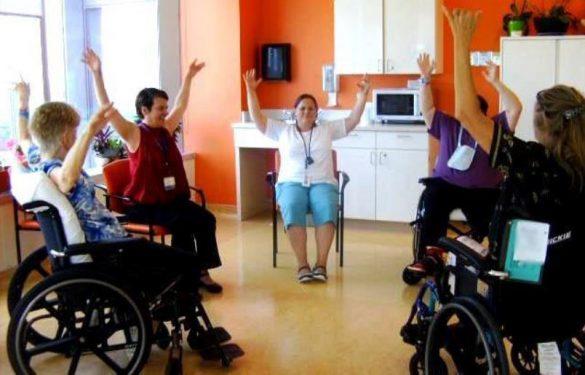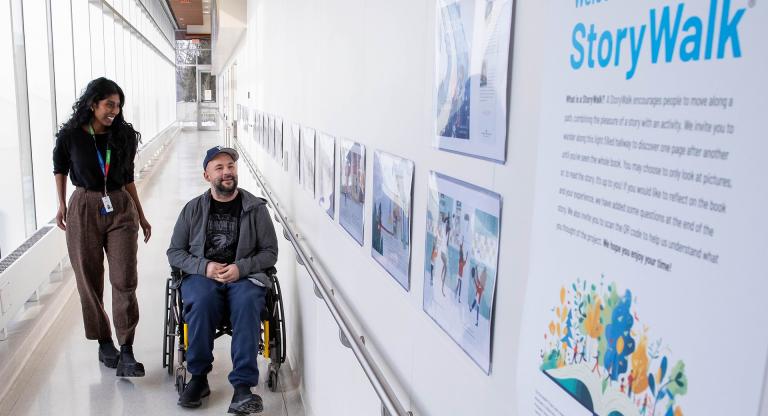Therapeutic Recreation and the impact of arts programming for patients in rehabilitation

Therapeutic Recreation use leisure activities to promote the social, emotional, physical, cognitive and spiritual well-being of patients. Bridgepoint’s programs include activities that enable patients to be creative and express themselves, through knitting, crafts, beading, colouring and singing. In honour of Therapeutic Recreation Month, learn about a recent study the Therapeutic Recreation team and patients at Bridgepoint participated in, investigating the impact of arts-based activities for patients.
Who: The Royal Conservatory Living Through the Arts Program and Bridgepoint’s Therapeutic Recreation team collaborated on the ARTS-REHAB Project. Patients were invited to participate based on criteria set by the research team.
What: A multi-year study aimed at answering the question: “How can meaningful engagement in a creative arts program serve the personal and social wellness of patients in rehabilitation?”
For the study, a group of patients had the opportunity to get creative and express themselves in a series of weekly arts sessions led by trained artist-facilitators. Each session focused on a different type of art: visual art, music, creative movement, drama and creative writing. Patients completed questionnaires before and after they participated in this series of sessions.
When: The study was conducted from 2014 to 2017
Where: Bridgepoint was one of six hospitals across Ontario that participated in the project. The weekly art sessions were held in activity rooms on the units for the selected patients to participate in the small group sessions.
Why: By participating in this project the Therapeutic Recreation team contributed to increasing our understanding of the impact of arts-based programs for patients in a rehab setting.
Tanya Greely, a Recreation Therapy Assistant who worked with the Artist-Facilitators “Each week, I witnessed and was directly involved in the journey of patients who (for some) had been in hospitals for long periods of time, with little opportunity to express themselves. The pieces they created were wonderful and purposeful. It was a pretty amazing experience for all of us involved.”
Some patients in the study rediscovered an appreciation for art. “Music is relaxing. It lowers my blood pressure,” one participant said. “When I go home, I’m going to play more music!”













